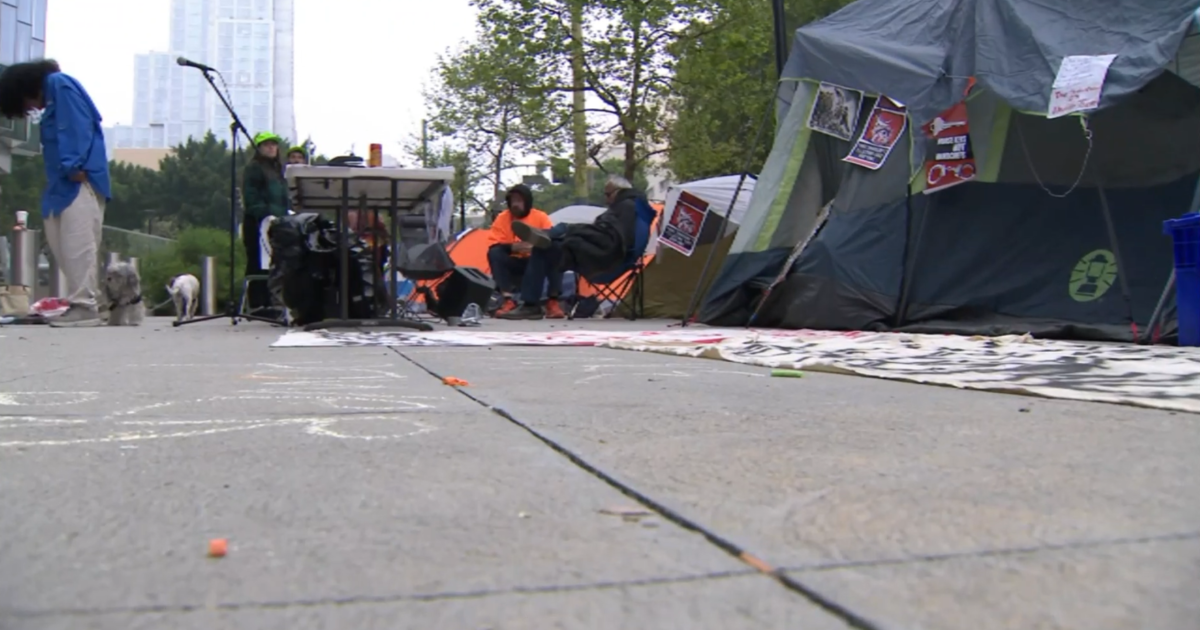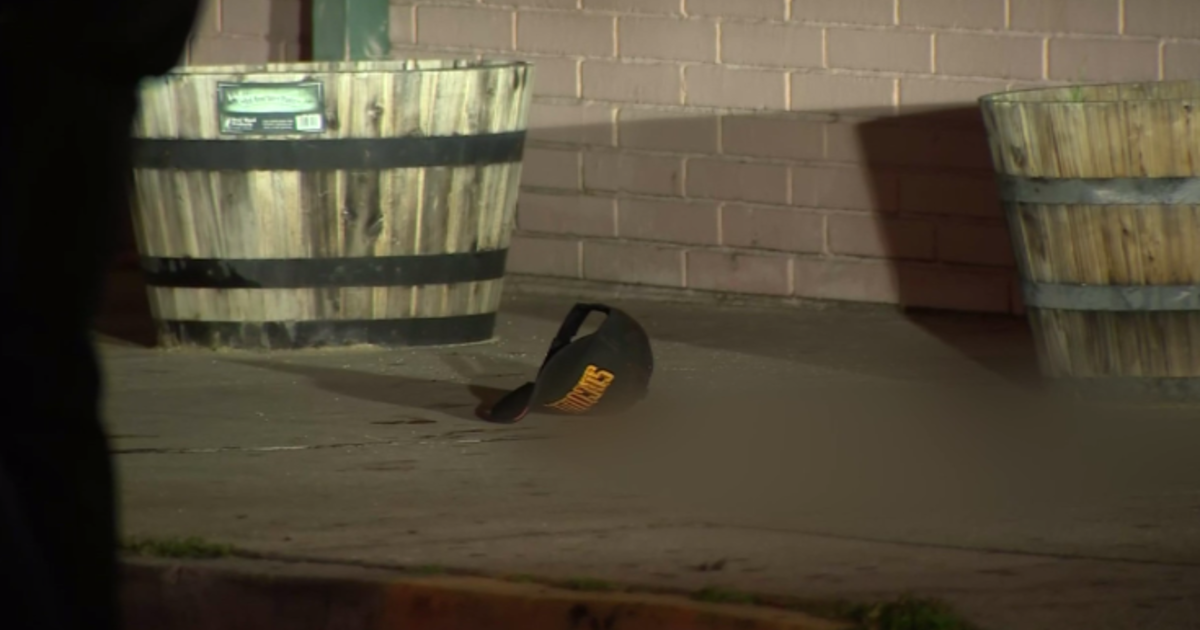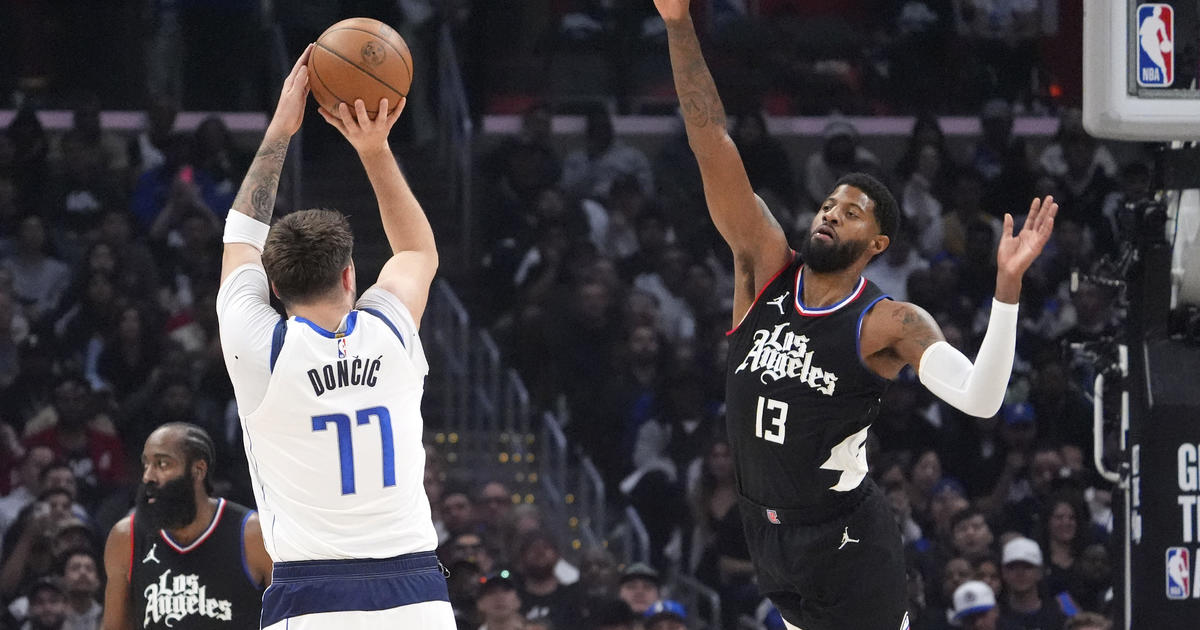Jurors Hear Completion Of Doctor Conrad Murray's Interview
LOS ANGELES (CBS/AP) — The jury in the involuntary manslaughter case against Michael Jackson's personal physician have heard the conclusion of the doctor's police interview that occurred two days after the singer's death.
A major portion of the 40 minutes played in court Tuesday focus on Murray's account of how he told the singer's mother and children about the pop superstar's death.
"After they cried and cried and cried, then his daughter uttered a lot of words of unhappiness," Murray told detectives, saying Paris Jackson was afraid of being alone after her father's death.
"I know you tried your best, but I'm really sad,"' he continued, recounting her words. "I will wake up in the morning, and I won't be able to see my daddy."'
Murray is heard on the recording saying that he held hands with Jackson's mother and his sister LaToya at the hospital where the singer was pronounced dead June 25, 2009.
"I cared about him," Murray told the detectives at one point. "I tried to help him."
Legal experts said the testimony could benefit both the prosecution and the defense.
As part of the interview, Murray revealed where to find three bags in Jackson's bedroom closet that contained syringes, vials of propofol and other medical equipment.
Murray and his attorney, Ed Chernoff, seemed to express surprise that detectives had not already located the bags.
LAPD Detective Scott Smith said it took two days after the interview to find the items.
"Did Doctor Murray seem surprised that LAPD had not yet recovered and been in posession of his medical bags? He seemed very surprised," Smith said. "His eyes got bigger, wider... as if he was surprised, a look of surprise."
Murray told the detectives he always put the medications and equipment he used on Jackson away "because he wanted me not to have anything hanging around."
Authorities contend Murray gave Jackson a lethal dose of the anesthetic and other sedatives while trying to help the singer sleep. Murray's attorneys say Jackson gave himself the fatal dose when the doctor left the room. Murray has pleaded not guilty.
The interview is Murray's version of events in Jackson's bedroom in the days and hours before the singer's unexpected death, but it is not the one that prosecutors want jurors to believe.
The cardiologist told police that he had only left Jackson alone for a couple of minutes to use the restroom before returning to find the entertainer unresponsive. But phone records presented during the trial, now entering its third week, show that Murray made multiple phone calls before realizing Jackson had stopped breathing -- including a 32-minute call to one of his medical clinics and another call to a girlfriend.
Murray made no mention of the calls during his police interview.
He told the detectives, who at that point hadn't yet ruled Jackson's death a homicide, that he thought the singer was becoming addicted to propofol after nightly treatments of the medication by Murray for roughly two months. He said he was trying to wean him off when things went wrong.
Prosecutors are expected to call a leading expert on propofol to explain the drug's effects and dangers to the panel. Deputy District Attorney David Walgren last week told the judge overseeing the case he intended to call Dr. Steven Shafer on Tuesday.
The prosecution case appears to be in its final stages, with coroner's officials, experts and police detectives among the remaining witnesses.
If convicted, Murray faces up to four years behind bars and the loss of his medical license.
(TM and © Copyright 2011 CBS Local Media, a division of CBS Radio Inc. and its relevant subsidiaries. CBS RADIO and EYE Logo TM and Copyright 2010 CBS Broadcasting Inc. Used under license. All Rights Reserved. This material may not be published, broadcast, rewritten, or redistributed. The Associated Press contributed to this report.)



